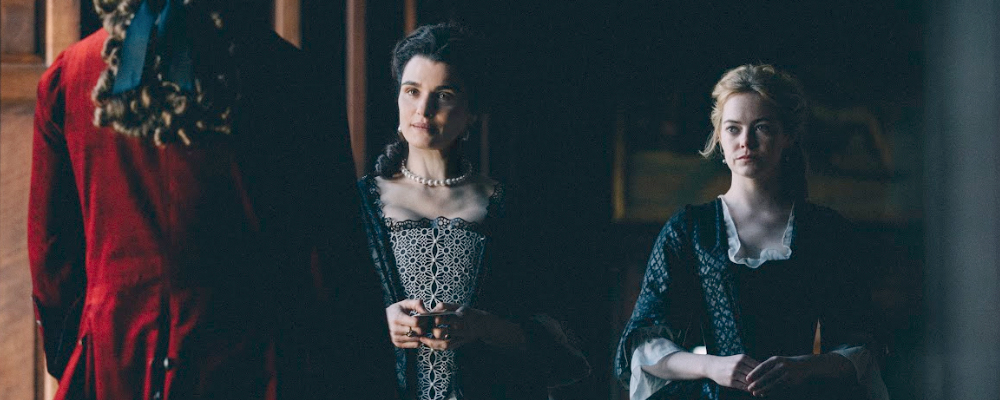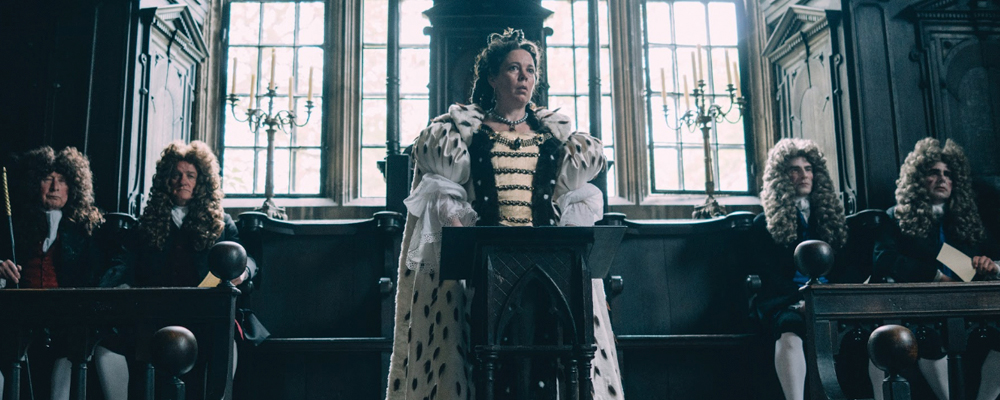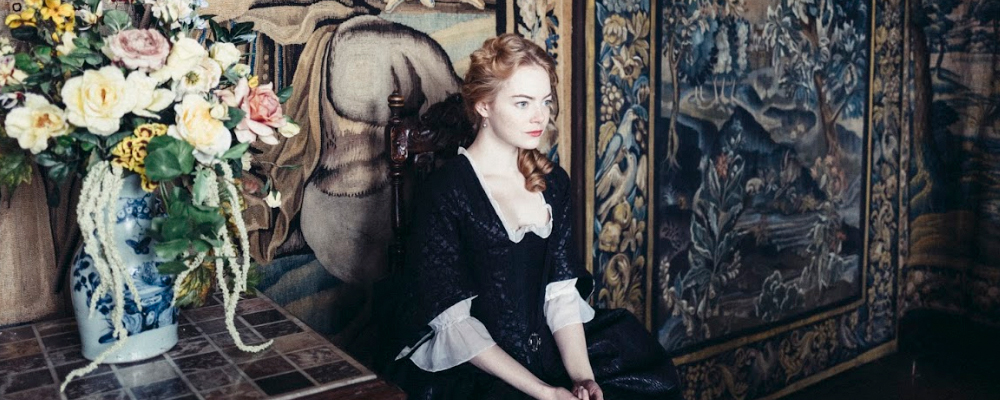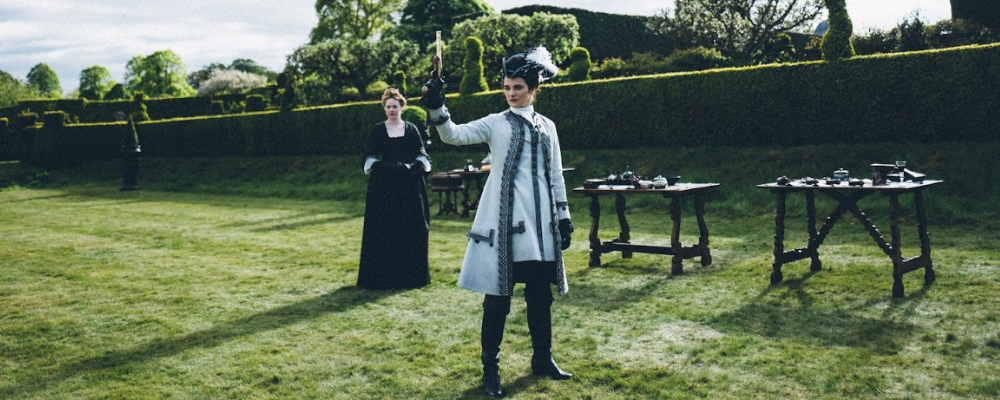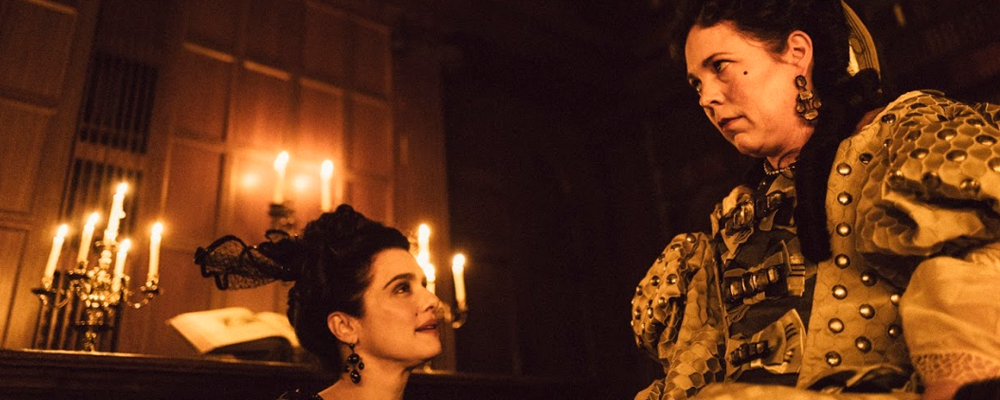Rachel Weisz and Emma Stone Engage in a Royal Battle of Savage Wits in ‘The Favourite’
Alci Rengifo
“The Favourite” understands that behind all of the protocols and pomp of power there lie hidden boiling passions, jealousies and vices. Sometimes they can also be quite funny. This viciously elegant offering is the latest from Greek enfant terrible Yorgos Lanthimos, who has tackled genres with the dark humor of a classic surrealist. Dystopia, romance and terror have marked his previous work, now he travels back in time to cheerfully tear down our preconceptions of what a period piece should act like. The dresses are gorgeous, the snacks rich, the décor lush, but the dialogue bites and poison might make its way into your glass.
We are in 1700s England. It is the reign of Queen Anne (Olivia Colman), a plump and cheery monarch who is prone to mood swings and loves her pet bunnies. At her side is Lady Sarah, the Duchess of Marlborough (Rachel Weisz), a strict overseer of the palace who encourages her majesty to continue waging a war against France. This is not a popular move with the landed class, whose representative in parliament is the big-wigged Lord Robert Harley (Nicholas Hoult). To the palace arrives, caked in mud, a young woman named Abigail (Emma Stone). Given by her father to a German after losing her in a bet, Abigail also happens to be Lady Sarah’s cousin. At first she is put on kitchen duty, but when the Queen is again stricken by a case of gout, Abigail takes the opportunity to apply an herbal remedy which seems to help. To Lady Sarah’s annoyance, Abigail begins to get closer to Anne, threatening to become her favorite. But it’s complicated, because as Abigail soon discovers while rummaging through a palace library by candlelight, Lady Sarah and Anne happen to be clandestine lovers.
In a season increasingly featuring some great films, Lanthimos’s “The Favourite” is a beautifully anarchic experience. Scored to a lot of Vivaldi, it has a subversive spirit almost mocking the pageantry of power. Queen Anne’s court is both refined and decadent. In an early scene aristocrats howl and cheer as they race ducks within the palace. The winner, Horatio, is the prized possession of Prime Minister Godolphin (James Smith), who walks him as you would a poodle. Later in the film a naked, wigged man will be pelted with fruit for giggles. But as Lanthimos dabbles in the debauchery of British royalty, he also has a hilarious time altering the way this kind of period piece is usually done. At a ball Lady Sarah dances with a young man and what begins as a typical, costume drama routine turns into a set of moves that look like “Pulp Fiction” meets swing dancing. When Abigail makes her way by carriage to the palace she’s crammed inside with other passengers, the man sitting in front of her stares and soon begins to furiously masturbate. The cinematography by Robbie Ryan beautifully emulates the look of classics like “Barry Lyndon,” bathing moments in Gothic candlelight or tracking through green forests where lovers slap and play. But into these beautiful frames Lanthimos teases and then distorts. Abigail meets a court hunk named Masham (Joe Alwyn) in the woods. In a typical costume drama a great romance would ensue, but here Abigail uses the poor fool as a tool for marriage to cement her place at court. We never see them making love, instead they wrestle amidst the trees with furious blows. On their wedding night she only bothers to jerk him off while thinking about how to get the upper hand on Lady Sarah. We are reminded that the warmest film Lanthimos has ever made is his brilliant, dark romance “The Lobster,” about single people sent to an island to either find a partner or transform into animals.
It is the triangle of affection and jealousy between Queen Anne, Lady Sarah and Abigail that forms the main drive of the movie. What begins as a riff on royalty becomes a savage chess game of wits. Once Abigail has Anne’s affection the war begins with Lady Sarah. The screenplay by Deborah Davis and Tony McNamara uses language like a sharp, cutting knife. A threat is more dangerous than a punch in this world (“I have a thing for the weak”) and gossip has its own currency. Lady Sarah will take Abigail to do some target practice, and there is always the threat the ladies will turn the muskets on each other, although Abigail does shoot a bird close enough to splatter blood on Sarah’s silver-grey frock coat and face. Poisonings, slaps, and the spread of malicious rumors will follow, all with the aim of attaining the power being next to the queen affords. Anne is like the spoiled object of affection who seems to enjoy the duel between the other two. As portrayed in this film, Anne is like an overgrown child running, in fact representing the state. She gobbles down a big blue cake even as her stomach rebels, turning to hurl into a silver urn held by a royal servant. Her rabbits are her true loves, even though at one point Lady Sarah tells her plainly that the fact she tells her the brutal truth means she really does love her.
These are some of the year’s best performances. Rachel Weisz is an icy intelligence as Lady Sarah, administering the state with brutal focus, asking a kitchen worker if the cost of milk is rising because she could be bathing in it to cure her hemorrhoids. Emma Stone lures us in with her sweetness, only to reveal the cunning calculator within. But she only thinks she’s smarter than she really is, not understanding how Lady Sarah truly operates. The best performance however, belongs to Olivia Colman as the pitiful Queen Anne, who we realize near the end might not be so pitiful and can summon up the terrible weight of her authority. But she’s still great fun to watch as she enjoys her wheelchair being pushed fast, shouting down an orchestra making too much noise and gleefully wanting to race lobsters. Nicholas Hoult is also wonderfully snaky as Lord Harley, walking in high heels and a large wig like a natural aristocrat, seeking gossip from Abigail and telling Masham that, “a man must look pretty.”
“The Favourite” is not only one of the year’s best, but one it’s most devilishly enjoyable movies. Lanthimos has widened his palette, while keeping his unique, strange and acidic humor intact. Like Luis Bunuel he directs like an observer of our human follies and quirks, finding them hidden even amid the pomp and circumstance of power.
“The Favourite” opens Nov. 23 in select theaters.

